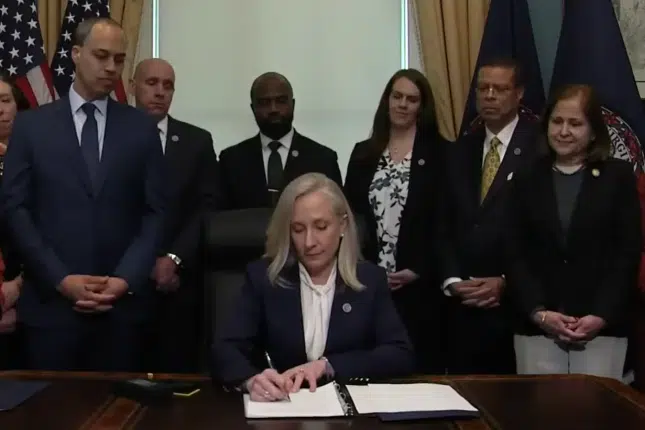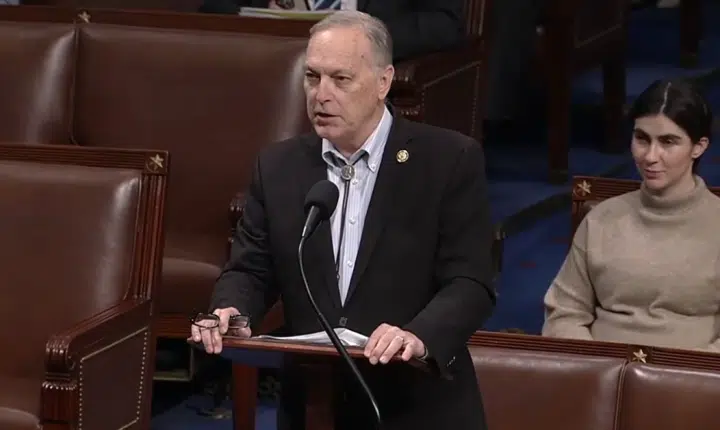By Kevin Mooney — Just after the sun set on the second Battle of Trenton in 1776, General Charles Cornwallis, was convinced he had finally trapped George Washington on the other side of a creek that was scene of fierce cannon fire. But the Continental Army had slipped behind British lines under the cover of dark to attack the smaller British regiment stationed in Princeton.
“At last, we have run down the sly fox and will bag him in the morning,” Cornwallis told a subordinate. But, the “Ten Crucial Days” that began with Washington’s Christmas Day Crossing of the Delaware River and ended with victory in Princeton, re-energized colonial support for the revolution and captured the attention of sympathetic powers like France.
In his interviews with the news media, N.J. Senate President Stephen Sweeney sounds confident he has the tactical advantage over his opponent Gov. Chris Christie who seeks to remake the judiciary. On the surface, Sweeney has good cause for confidence. His Democratic Party, backed by the power of organized labor, controls the State House and benefits from a sympathetic news media.
Christie set off the current standoff last May when he declined to reappoint a sitting state Supreme Court justice. Under the N.J. Constitution ratified in 1947, all lower-court judges and Supreme Court justices are appointed by the governor. After a period of seven years, they are then eligible to be reappointed by the governor with tenure until mandatory retirement at 70.
When Associate Justice John Wallace petitioned for reappointment, Christie took the opportunity to deliver on his campaign pledge to remake the judiciary and settled on an alternative nominee named last May. It was first time in 63 years that a Supreme Court judge seeking tenure was denied. However, Sen. Sweeney who is closely associated with Wallace, refuses to hold confirmation hearings for Anne Patterson, the former deputy state attorney general, Christie has selected.
N.J. media outlets have predictably joined with Sen. Sweeney to lecture the public about the need for “judicial independence,” but have thus far neglected any meaningful discussion of the damage done to representative government by activist rulings.
There is no question Gov. Christie has the authority to deny reappointments and to make his own selections, Earl Maltz, a Rutgers University law professor, said in an interview. Although the standoff between Gov. Christie and Sen. Sweeney has disrupted the normal flow of politics in N.J., there is a potential upshot in that it could help clarify key constitutional questions, Maltz has suggested.
For example, he does not believe Chief Justice Stuart Rabner has the authority to make temporary appointments on the seven member court, unless it falls short of a quorum. Nevertheless, Justice Rabner has appointed Chief Appellate Judge Edwin Stern to fill Wallace’s seat.
“I think he [Rabner] lacked the authority to make this appointment particularly within the context of the situation we are talking about,” Maltz said. “To be fair, he’s not the first to do this. That authority only comes into play when the court falls below the number needed to have a quorum and this could become an issue once we have another vacancy, which will be soon.”
Associate Justice Roberto Rivera-Soto has further complicated the standoff between the Senate and Gov. Christie. As a way of protesting the appointment Chief Justice Rabner made to fill the current vacancy Rivera-Soto had pledged to abstain from all votes. He tempered this position after Senate Democrats threatened impeachment. However, come September, Rivera-Soto has announced that he will step down. Justice Virginia Long, a Democrat, will reach the mandatory retirement age of 70 in March 2012. Justice Helen Hoens’ seven-year term ends October 2013, one month before Christie faces re-election. And Rivera-Soto is up for renomination in September.
This means Christie will have three more openings before his first term ends.
“That’s when the legalities get a little dicey,” Maltz observed. “Once you get below five justices you do not have a quorum and at that point it’s pretty clear the chief justice can make appointments.”
Christie has already said that he will not make another appointment until Patterson gets a hearing. Although he does have it within his authority to make a recess appointment, which would expire at the end of the regular session of the N.J. Senate, Maltz does not expect Christie to move in this direction.
As one of the original 13 colonies, N.J. responded forcefully to the phrase “no taxation without representation” and helped set the stage for a new constitutional order that keep political power divided, checked and limited. But over the past few decades, history has turned away from ideals underpinning the Revolution and in the direction of an unelected, elite class of policymakers. Despite the reverence and appreciation local residents have maintained for the “Spirit of 1776,” they now inhabit a world that was reshaped at the behest of a renegade government agency.
Beginning in 1973, the N.J. Supreme Court saw fit to interject itself into education policy and to force tax hikes onto local residents in an effort to bring funding for poorer school districts into greater parity with wealthier districts. It was at this point that the concept of self-government as it was expressed in the Declaration of Independence became inoperative in N.J.
Writing on behalf of the court in Robinson v. Cahill, Chief Justice Joseph Weintraub suddenly discovered that the local funding system used to support public schools violated the “thorough and efficient” clause included in the state constitution because it shortchanged urban districts.
For almost 100 years prior to Robinson, no previous court viewed the funding mechanism underpinning K-12 education as a subject matter open to adjudication. This ruling set the stage for Abbott v. Burke, which resulted in a 1985 ruling that ordered state spending on poor districts to be put on an equal footing with wealthier school districts.
In subsequent Abbott rulings, the court has ordered state officials to maintain equal levels of funding and to support supplement programs aimed at boosting the quality of education in urban settings.
Under Chief Justice Robert Wilentz (1979-1996), the court further intruded into the public policy in a series of rulings known collectively as Mount Laurel, which directed local communities to provide affordable housing.
Where does the N.J. Supreme Court derive the authority to reshape public policy in such a profound manner without popular consent and without legislative approval? Gregory Sullivan, a practicing attorney who writes a column for the Trenton Times, sees an “imperial judiciary” at work that has violated the separation of powers.
“How much money is spent and where has nothing to do with the constitution,” Sullivan said. “It has everything to do with determinations by legislators and governors who are electorally responsible for their decisions. By contrast, it is essentially impossible to hold any court accountable for the squandered millions that have been judicially ordered for decades.”
To be sure, the state has its own long history with the notion of a “living constitution” and with progressive political figures. President Woodrow Wilson, who previously served as governor of N.J. and president of Princeton University, openly rebuked the ideals of the founding period. William Brennan, a U.S. Supreme Court justice who applied the “cruel and unusual punishment” prohibition against capital punishment in contradiction to the clear intention of the framers, was a former N.J. Supreme Court justice.
But in just the past year, the political terrain has shifted dramatically in the Garden State. The onset of an acute financial crisis has reawakened the public’s appetite for restrained and accountable government agencies that derive their legitimacy by way of popular consent.
“Revolution is a good word for what Gov. Christie is trying to do,” said Thomas Gentile, a N.J. attorney active with the Federalist Society. “We are talking about a radical change in New Jersey politics that could possibly result in profound fiscal reform. The ultimate goal here is to re-empower the governor and the legislature with the ability to push for creative solutions to education such as charter schools and voucher programs that are better suited for the modern age and get beyond the idea of just spending a lot of money. Unfortunately, you can’t begin to scratch the service here with what’s possible under the budget restraints imposed by the New Jersey Supreme Court. That’s why Christie has made it a priority to end judicial activism in his state. That’s now a winning issue politically. The over-reaching of the public employee unions has created the right environment politically for reform.”






